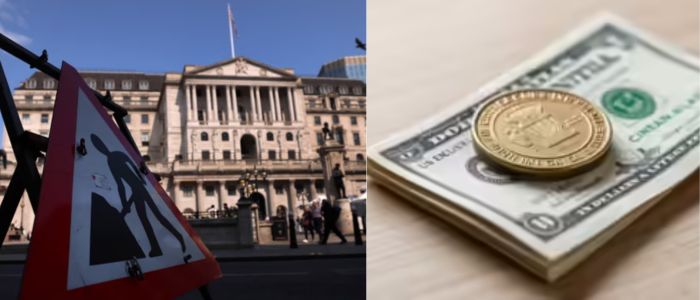A 25-basis-point cut would take the base rate down to 4.25% and represent the fifth such move since last August, when it began cutting rates -- its most recent being in May.
Financial markets predict a rate cut — almost certainly — and reflect certainty that the central bank will respond to try to shore up an economy in obvious trouble. Households will also likely benefit from further reductions in monthly mortgage payments as interest rates fall.
There will, however, be much relief in the office of Shadow Chancellor Rachel Reeves, particularly given the way many on the Labour benches have been mocking her party's economic strategy.
Ministers claim that the fall in rates over the past two quarters has been achievable only because Labour re-established market tranquillity when it came to office. The party published statistics suggesting that a typical household is currently spending £1,000 less each year on their mortgage than in July 2014.
Disputes Over Inflation Vs Growth Reined in
Market expectations of a cut next Thursday have receded as division in the Bank's nine-member Monetary Policy Committee (MPC) has grown.
Others, including outside economists Alan Taylor and Swati Dhingra, are calling for an even larger cut of a half percentage point due to concerns about rapidly rising unemployment.
However, others, such as Chief Economist Huw Pill and external member Catherine Mann, are expected to vote to keep rates on hold, as they worry that inflation is still too high.
With inflation running at 3.6% in June — well above the Bank's 2% target — and broader economic indicators such as business surveys suggesting a softening in activity, those minutes will be pored over for any sign of reduced tolerance on the part of unexpected hawkish members towards growing price pressures.
Mr Bailey and most members of the nine-person Monetary Policy Committee (MPC) are expected to vote for a 0.25% cut in rates, demonstrating a three-way split, which illustrates the difficulty of trying to strike a balance between keeping inflation under control while sustaining economic expansion and shielding jobs.
Former MPC member Michael Saunders said the split was not surprising given the complexities of their position: "You've got weak growth — unemployment rising and inflation well above target — all those signals are pulling you in opposite directions."
Rate relief but no end to economic strains
While lower interest rates make borrowing cheaper and can spur activity, they also risk fuelling inflation if the resulting rising consumer demand is not met by sufficient capacity to produce more goods and services.
Labour has come under pressure on business taxes, in particular after the first autumn budget was criticised for hitting firms by hiking up employment taxes. Critics in the business community say that these changes translate into job cuts and price hikes.
The bigger economic picture is more cloudy. That unemployment has picked up, that GDP shrank in both April and May, and inflation is proving to be more resilient than expected. At the same time, fears of a global trade war, most prominently from the start by Donald Trump of a fresh round of tariffs on Chinese goods, could weigh on investment.
Others also argue that cheap, USA-bound Chinese exports could be diverted to the UK and so help alleviate inflationary pressures.
There is already some relief for mortgage borrowers. The average two-year fixed rate is now 4.52%, which Labour says saves homeowners about £81.69 a month.
I will never forget the chaotic situation Labour inherited when we came into office, capped by 14 years of Tory failure to create a stable economy.
Treasury minister James Murray said, "Rates have been slashed four times since we took office, all of which is putting more pounds into the pockets of homeowners. "
The Bank will publish the decision and its latest forecasts on Thursday, giving a clearer picture of how policymakers are planning to steer Britain's nascent recovery.
Top

Bank of England Expected to Cut Interest Rates Again Amid Economic Divide

The Bank of England is set to cut interest rates again on Thursday to get money flowing around the economy, in what will be either its second or third move in a year to help cash-strapped households and businesses.











